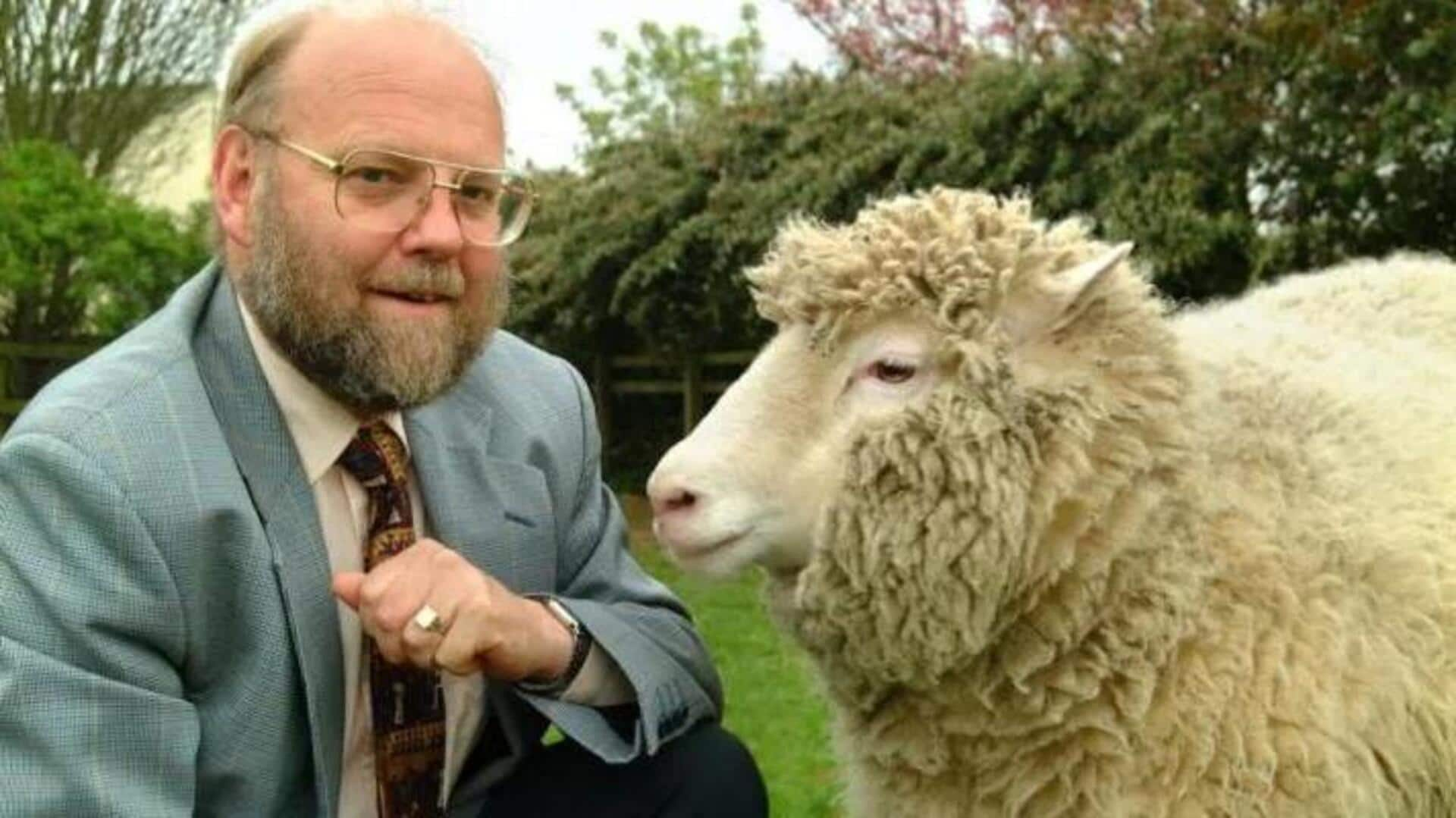
Ian Wilmut, who cloned Dolly the sheep, dies at 79
What's the story
Sir Ian Wilmut, the renowned scientist who led the team that successfully cloned Dolly the sheep in 1996, passed away at the age of 79. The University of Edinburgh announced his passing on Monday. Wilmut's work in animal genetics and cloning has had a lasting impact on the field of regenerative medicine.
Details
Early life and groundbreaking embryo research
Born in 1944 near Stratford-upon-Avon in England, Wilmut discovered his interest in biology while studying at school in Scarborough. He pursued animal science at the University of Nottingham and earned his Ph.D. from the University of Cambridge. In 1972, he became the first scientist to successfully freeze, thaw, and transfer a calf embryo to a surrogate mother, focusing on preserving semen and embryos for freezing.
What Next?
Dolly's birth gave rise to ethical debates
Dolly's successful birth in 1996 marked the first time a mammal was cloned from an adult cell, demonstrating the viability of somatic cell nuclear transfer (SCNT). However, it also sparked controversy and ethical concerns about the potential for cloning humans and creating "designer humans." Religious groups accused the researchers of "playing God," while others worried about the implications for animal welfare.
Insights
Wilmut's legacy in regenerative medicine
After retiring from the University of Edinburgh in 2012, Wilmut focused on using cloning to make stem cells for regenerative medicine. He was knighted in 2008 and diagnosed with Parkinson's in 2018, becoming a patron of a new research program at the university working to slow the disease's progression with next-gen therapies. Wilmut is survived by his wife, children, and grandchildren, leaving behind a lasting legacy in the field of regenerative medicine.